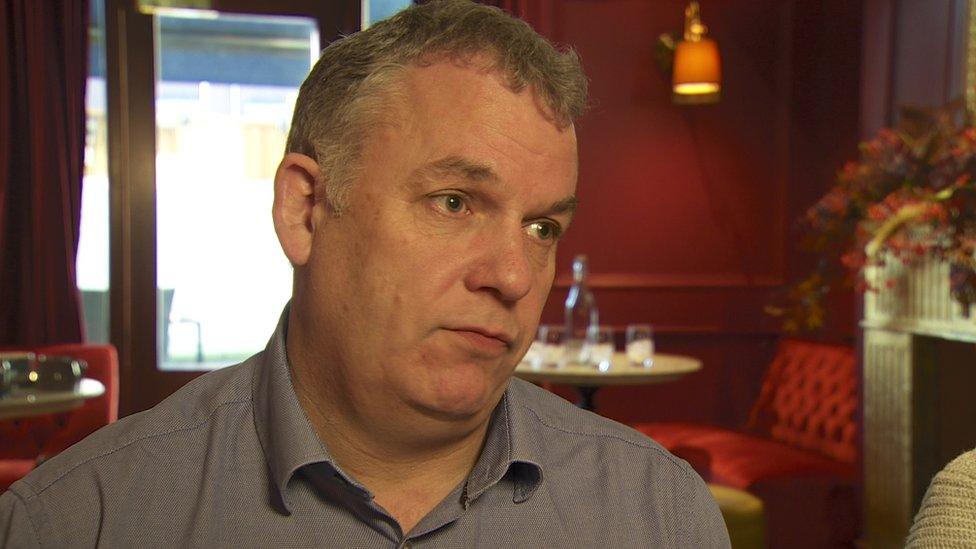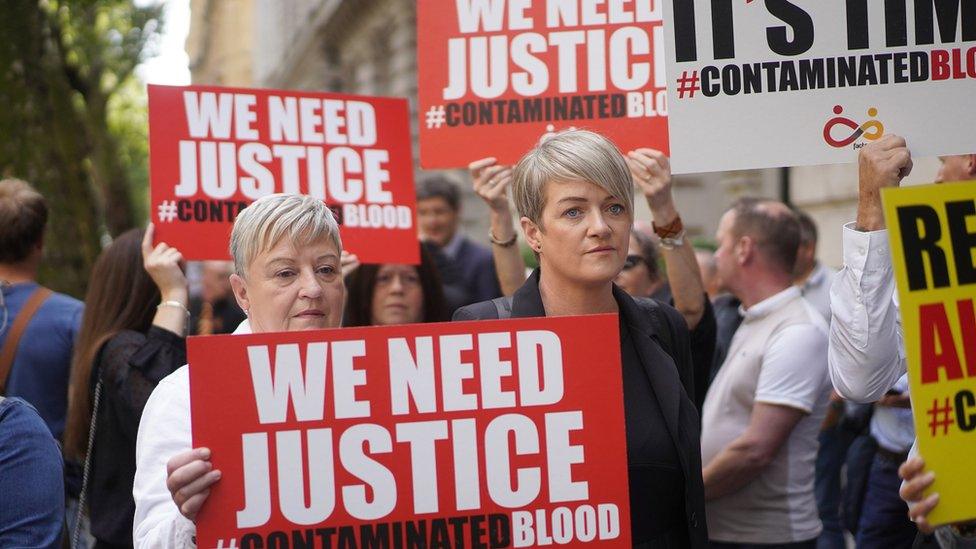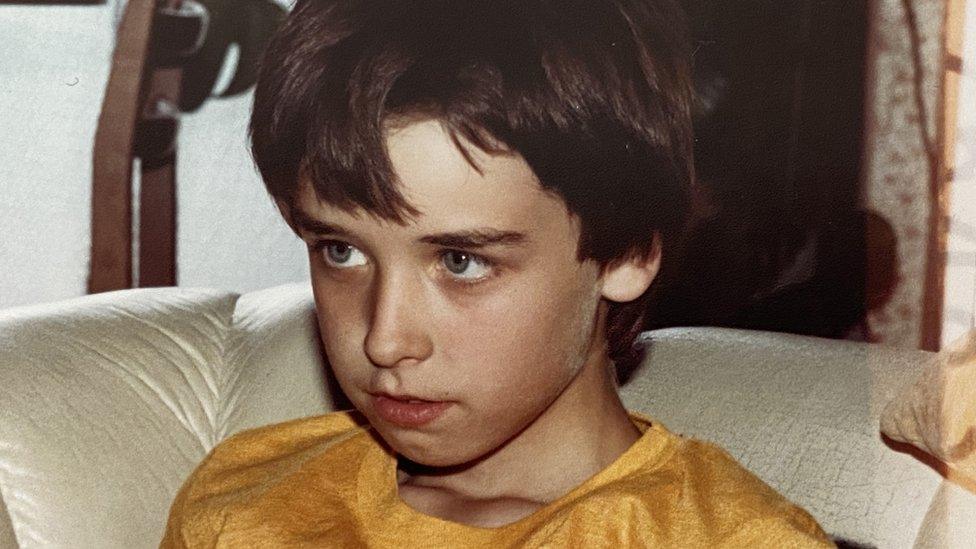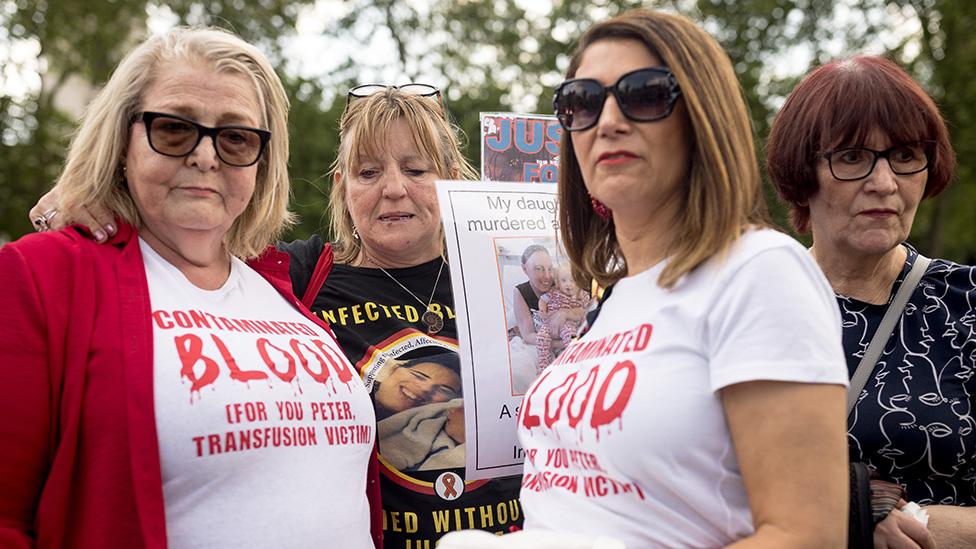Infected blood: Derry man says government vote stance 'shameful'
- Published

Paul Kirkpatrick has Hepatitis C stage one as a result of infected blood products given to him in childhood
Government opposition to speeding up compensation for infected blood scandal victims is "shameful", a Londonderry man has said.
MPs backed an amendment in a first Commons defeat for the prime minister.
Up to 30,000 people were given contaminated blood products in the 1970s and 1980s.
Paul Kirkpatrick, from Families and Friends of Haemophilia Northern Ireland, said he had lived with health issues since childhood.
Ministers will now have to set up a body to run the scheme within three months of a new bill becoming law.
Monday's vote was passed by 246 votes to 242 after 22 Conservatives rebelled.
More than 3,000 people died after contracting HIV or hepatitis C after receiving a blood transfusion on the NHS or a treatment made from contaminated blood.
'Stonewalling'
"It was shameful that the Conservative government voted against it and tried to apply their party whip process to try to prevent their other Tory MPs voting against it," Mr Kirkpatrick told BBC's Good Morning Ulster on Tuesday.
"This is a non-party political issue - it had full cross-party support throughout Scotland, England, Wales and Northern Ireland.
"We've had five years of an inquiry ongoing which has heard some harrowing stories," he added.
Mr Kirkpatrick accused the government of "stonewalling".

Campaigners for a compensation scheme gathered in London earlier this year
The government has said there is a moral case for compensating victims of the scandal, and has agreed to make the first interim payments of £100,000 each to 4,000 surviving victims and bereaved partners.
However, it said it wanted to wait for the infected blood inquiry to conclude before setting up a full scheme.
Mr Kirkpatrick said that the government has had the "compensation aspect of the final report in their hands for 18 months".
"In that period one person is dying every four days. They've had it for 18 months and we have had no detail," he added.
The vote - an amendment to the Victims and Prisoners Bill - was the government's first defeat in the Commons on a whipped vote since the general election in 2019.
The legislation now needs to be approved by the House of Lords before becoming law.
Earlier this year, Sir Brian Langstaff, who is chairing the inquiry, called for a full compensation scheme to be set up immediately. He also said it should be widened to include orphaned children and parents who lost children.
Sir Brian's inquiry had been due to publish a final report in November, but this has been pushed back to March 2024.
In an attempt to speed up efforts to compensate victims, Dame Diana Johnson - who leads the All-Party Parliamentary group on Haemophilia and Contaminated Blood - put forward the amendment.
She told MPs that Sir Brian had already made clear his inquiry's recommendations on compensation and that the government did not need to wait for his final conclusions before setting up a scheme.
The defeat came despite a last-ditch attempt by the government to offer concessions in an attempt to placate MPs.
Justice Minister Edward Argar had said the government would try to amend the bill in the Lords to clarify when the body to provide compensation to infected blood victims would be delivered.
Related topics
- Published5 December 2023

- Published6 October 2022

